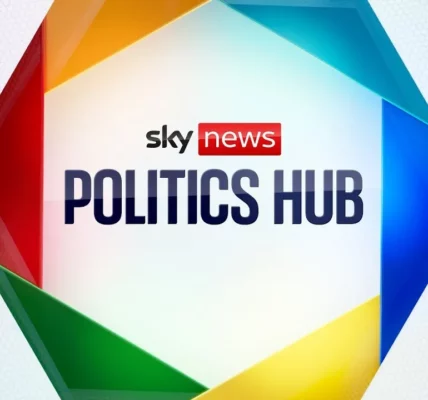Politics at Jack and Sam’s Daily – October 10th Discussion

Welcome to another insightful episode of Politics at Jack and Sam’s Daily. Join us as we delve into the complexities of British politics, exploring major events and decisions that shape our nation. Today, we’ll discuss the government’s critical agenda, including a groundbreaking employment rights bill and the latest developments in the Tory leadership race.
Introduction to Current Political Climate
On this Thursday, October 10th, the political landscape in the UK is charged with significant events. With the government at a crucial crossroads, Jack and Sam reflect on the fast-paced developments affecting both the ruling party and the opposition. The discussions today will center around major topics like the visit of Ukrainian President Volodymyr Zelenskyy, ongoing tensions regarding NATO strategies, and the unveiling of the new employment rights legislation, which aims to reshape the workplace for millions of workers across the nation.
Zelenskyy’s Visit and NATO Discussions
President Zelenskyy of Ukraine is in Downing Street for pivotal discussions with Prime Minister Rishi Sunak and NATO Chief Mark Rutte. This visit comes at a critical time as Ukraine seeks to strengthen its military strategies amidst ongoing conflict with Russia. The talks are aimed at garnering support for Ukraine’s victory plan, which includes enhancing military capabilities with Western-built missiles.
The Importance of the Victory Plan
Zelenskyy’s tour of Western capitals signifies a strategic move to align military support against Russian aggression. His agenda includes:
- Engagement with key leaders, including meetings in Paris, Rome, and Berlin.
- Negotiating the use of advanced weaponry, such as Storm Shadow missiles.
- Building consensus among NATO members to ensure unified support for Ukraine.
However, internal divisions within NATO regarding military support pose challenges to Zelenskyy’s efforts. While the U.S. appears hesitant to endorse certain military actions, the visit aims to solidify commitments from various leaders.
New Employment Rights Bill Unveiling
One of the key highlights of today’s agenda is the announcement of the new employment rights bill, aimed at enhancing workers’ rights across the UK. With 28 new regulations introduced, this bill represents a significant shift in labor relations and is expected to be a cornerstone of the Labour Party’s platform.
Main Features of the Employment Rights Bill
The proposed legislation includes a range of measures designed to protect workers, including:
- Day One Rights: Workers will be entitled to paternity leave and unpaid parental leave from their first day of employment.
- Universal Sick Pay: Employees will receive sick pay from the first day of illness.
- Zero-Hours Contracts: Individuals on zero-hours contracts can request guaranteed working hours.
- Ban on Firing and Rehiring: This controversial practice will be prohibited in most circumstances.
- Flexible Working Rights: Workers will have the right to request flexible working arrangements as the default.
Negotiations and Trade Union Involvement
The bill has been developed in consultation with trade unions, which have played a critical role in shaping its provisions. Union leaders express satisfaction with the outcomes, marking a potential shift towards greater worker empowerment in the UK.
Budget Considerations and Economic Implications
As the government unveils employment rights, attention turns to the looming fiscal challenges. Reports indicate that Rachel Reeves may need to identify £25 billion in tax rises to maintain funding without reverting to austerity measures.
Fiscal Policy Challenges
The government is faced with competing commitments, including:
- No return to austerity, a term that remains undefined.
- Maintaining fiscal rules that restrict government spending.
- Protecting working individuals from tax increases while addressing business taxation.
The potential for increased National Insurance contributions for employers is under discussion, which could generate significant revenue without directly impacting employees. However, such measures are fraught with political risk and public backlash.
Recent Developments in the Tory Leadership Contest
The political landscape within the Conservative Party has become increasingly tumultuous following surprising results in the leadership contest. James Cleverly, who was previously a frontrunner, has been eliminated, leading to a contentious atmosphere among party members.
Implications of Leadership Contest Results
The emergence of candidates like Cammy B and Robert Jenrick raises questions about the party’s direction. Observers note:
- Internal voting strategies may have backfired, complicating the leadership race.
- Future leadership contests may be dominated by personality rather than policy.
- The potential for increased conflict among candidates could shape the party’s public perception.
The Tory party’s ongoing struggles highlight the broader challenges facing British politics, where leadership stability is increasingly elusive.
Conclusion
As we wrap up today’s discussion, it’s clear that the UK faces significant challenges on multiple fronts—from international relations and military strategy to domestic employment rights and fiscal policies. The coming weeks will be pivotal in determining how these issues unfold. Stay tuned for further updates and analyses as the political landscape continues to evolve. For more insights and discussions, visit our related articles on British politics and government policies.
“`




